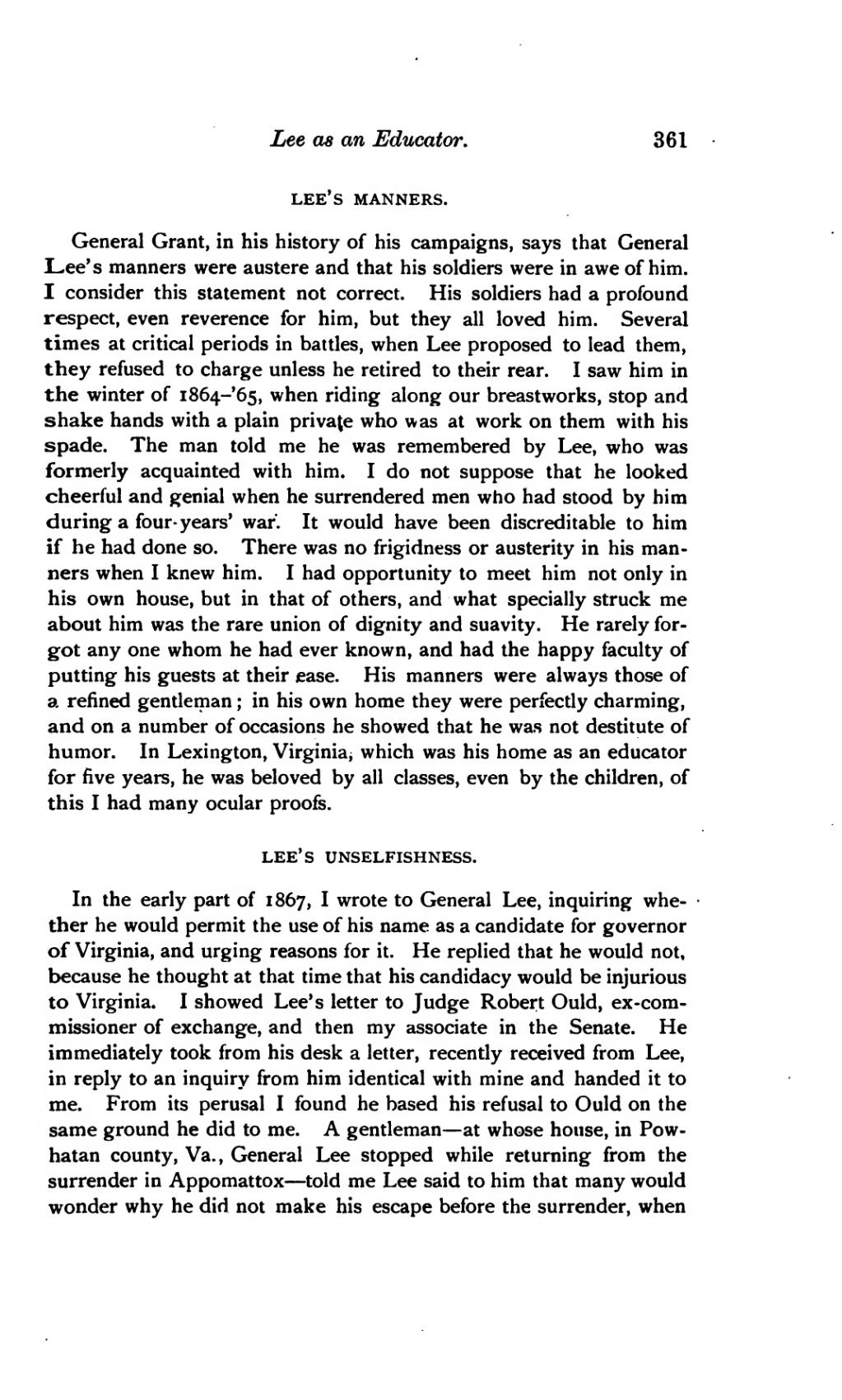Lee as an Educator, 361
LEE S MANNERS.
General Grant, in his history of his campaigns, says that General Lee's manners were austere and that his soldiers were in awe of him. I consider this statement not correct. His soldiers had a profound respect, even reverence for him, but they all loved him. Several times at critical periods in battles, when Lee proposed to lead them, they refused to charge unless he retired to their rear. I saw him in the winter of 1864-65, when riding along our breastworks, stop and shake hands with a plain privaje who was at work on them with his spade. The man told me he was remembered by Lee, who was formerly acquainted with him. I do not suppose that he looked cheerful and genial when he surrendered men who had stood by him during a four- years* war. It would have been discreditable to him if he had done so. There was no frigidness or austerity in his man- ners when I knew him. I had opportunity to meet him not only in his own house, but in that of others, and what specially struck me about him was the rare union of dignity and suavity. He rarely for- got any one whom he had ever known, and had the happy faculty of putting his guests at their ease. His manners were always those of a refined gentleman ; in his own home they were perfectly charming, and on a number of occasions he showed that he was not destitute of humor. In Lexington, Virginia^ which was his home as an educator for five years, he was beloved by all classes, even by the children, of this I had many ocular proofs.
lee's UNSELFISHNESS.
In the early part of 1867, I wrote to General Lee, inquiring whe- ther he would permit the use of his name as a candidate for governor of Virginia, and urging reasons for it. He replied that he would not» because he thought at that time that his candidacy would be injurious to Virginia. I showed Lee's letter to Judge Robert Ould, ex-com- missioner of exchange, and then my associate in the Senate. He immediately took from his desk a letter, recently received from Lee, in reply to an inquiry from him identical with mine and handed it to me. From its perusal I found he based his refusal to Ould on the same ground he did to me. A gentleman — at whose house, in Pow- hatan county, Va., General Lee stopped while returning from the surrender in Appomattox — told me Lee said to him that many would wonder why he did not make his escape before the surrender, when
